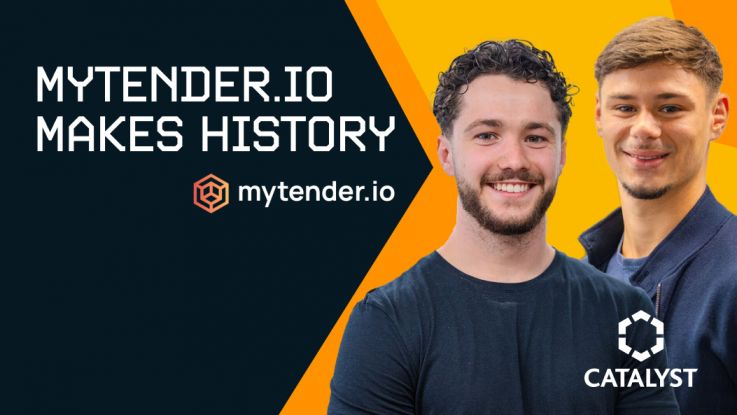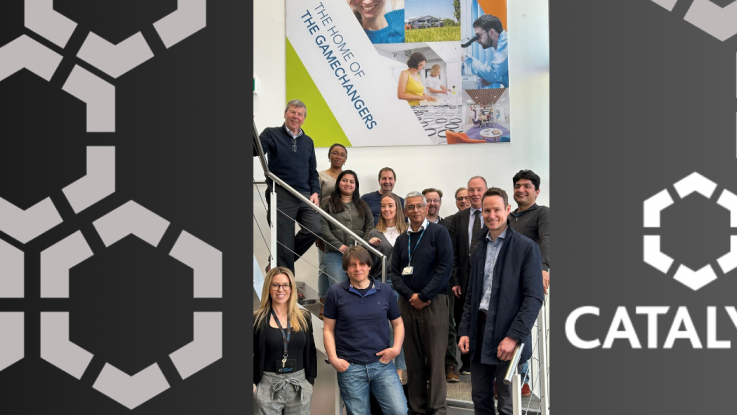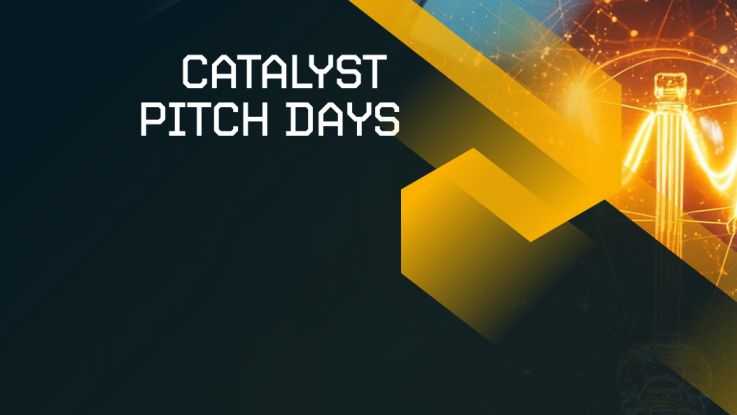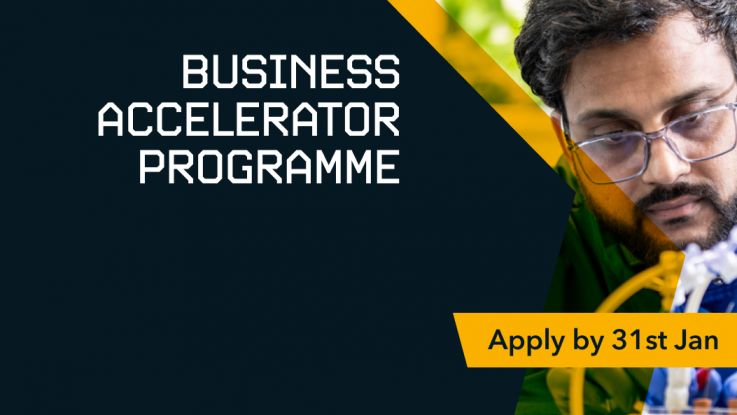

Catalyst Cohort 14 Celebrates
On 17th March, the Catalyst team at Southampton Science Park held a lunch celebration to congratulate the eight companies that completed the prestigious business acceleration programme this spring.
Welcoming everyone to the event, Director Lucinda Lamont reflected on the success of Catalyst, noting that 85% of the early-stage businesses that it has supported are still trading (this in comparison to the national picture which shows that 81% of the 50,000 UK start-ups each year cease operations). The programme mentors, Phil Sharpe, Adrian Braine and Gary Smith, who have been helping to grow start-ups and small businesses for over a decade, have played pivotal roles in this achievement, as has David Bream, whose support and expertise has been invaluable since its inception.
She also touched on how the programme itself continues to grow and thanked new partners that are enabling this. Support from Health Innovation Wessex, the National Oceanography Centre and the University of Southampton’s School of Healthcare Enterprise and Innovation, mean that Catalyst will now run twice yearly, with new cohorts joining each March and September.
Then the graduating Catalyst companies took centre stage. Introduced by their mentor, one representative from each presented their business and reflected on the key learnings from their Catalyst experience. Here’s what they had to say:
James Harcourt, Novatura, spoke of how Catalyst had teased out ambition in the young agency start-up team. With impressive clients and projects secured across a range of sectors already, the company is developing products and building valuable intellectual property. “We were technical people with no business expertise; Catalyst has been a big skills uplift for us and now we’re all onboard and committed to the business for the long term,” he said.
Natalie Coleshill, HealthRoam, discussed how ‘businesses’ themselves don’t really exist, rather, they are webs of trusted relationships. An established and successful business professional, Natalie highlighted the programme’s impact for her new venture in terms of building such relationships and developing business opportunities, mentioning that her company was on the cusp of closing a very big contract.
Susan and Michael Forrester, QuJit, came to Catalyst with a lot of research and an open mind to all ideas about how to commercialise it. Both physicists, these founders were looking for direction and leave with a viable business proposition, a roadmap for protecting their quantum engineered intellectual property and avenues to take it to market.
Julian Rigamonti, Concerto Television, had already launched and exited a successful business venture and had extensive industry networks when he came to Catalyst with a new proposition. His challenge now was to pivot to a new business model that would bring classical music to audiences through streaming rather than the subscription-based model he’d previously had success with. “Catalyst helped me to channel in the right direction and I have just closed my funding round today, achieving exactly what I’d asked for,” he announced.
Adrian Roe, id3as, one third of a serial entrepreneurial team, wanted to do ‘the most difficult thing’: turn their video streaming technology service business into a product business, building iterative solutions while managing inevitable revenue disparities. He noted how the team was kept on track with this transition by the accountability of having a Catalyst mentor working alongside them and spoke of how ‘working with a bunch of remarkable people and getting feedback from other bright, engaged business founders had been invaluable’.
Ben Peters, Hummingbird Insurance Services, and business partner Steven arrived with effectively three businesses and a wealth of insight into the complex commercial fleet insurance sector. They leave with a new AI software platform-based business that will enable fleet managers to reduce costs and loss ratios, and aggregate data for ongoing efficiency. He remembered the level of research they conducted into the value of the Catalyst programme before applying, concluding that it had been incredible and they ‘didn’t regret applying for one minute!’
Jamie Horsnell, Mytender.io, and co-founder Samuel, came to Catalyst with a strong business proposition and critically, a great deal of drive, motivation, confidence and energy. Applying AI to help companies be more efficient and successful when tendering for government contracts, the team has solidified their product offering, aligned with a value proposition that makes this daunting job intuitive and fun for users! They already have an exceptional client base.
Dr Andy Taylor and Nicky Taylor, Aurora, have invented an approach to treating osteoarthritis which offers rapid intervention and the opportunity to dramatically improve quality of life for the one in six people in the UK who suffer. Catalyst supplemented their medical expertise with valuable insights into areas where they had little experience such as making connections within the NHS. The pair leave with a defined business plan and a focused investment strategy, announcing that they have already succeeded in winning grant funding.
Applications for the Catalyst business accelerator are welcome at any time.
















































































